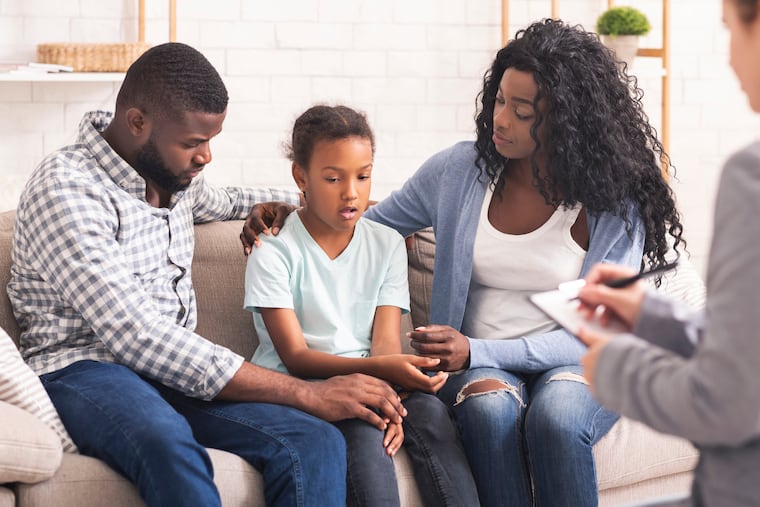Q&A: What parents need to know about OCD in kids
Kids with OCD differ from adults in that their immaturity and lack of life experience may result in less insight that their obsessions and compulsions signify a mental disorder that needs treatment.

Obsessive-compulsive disorder presents in children very much the same way as in adults: Kids with OCD experience repetitive and intrusive thoughts, images, or doubts that don’t make a lot of sense but are nonetheless distressing and unwanted. And, just like adults, kids with OCD quickly find themselves trapped in a cycle of using compulsions to make these obsessions — or the distress caused by the obsessions — go away.
Common compulsions in child OCD include:
seeking reassurance from caregivers that one is not a terrible kid for having the obsessive thoughts
trying to replace a “bad thought” with a “good thought” or otherwise attempting to distract themselves from the thoughts
repetitive behaviors to try to make sure their obsession doesn’t come true, such as by checking, cleaning, or avoiding feared situations that might trigger them
Children with OCD differ from adults in that their relative immaturity and lack of life experience may result in less insight that their obsessions and compulsions signify a mental disorder that needs treatment. This doesn’t mean kids suffer any less, though.
In fact, the most common misconceptions adults have about OCD in kids is that it is limited to washing, checking, or funny little habits, but could not possibly include the kinds of “adult” obsessions we tend to think of as requiring exposure to some of the more complicated aspects of the world. However, just like adults, kids with OCD frequently suffer from:
extremely bewildering and painful obsessions about causing someone physical or psychological harm
unwanted sexual obsessions or obsessive doubts about their sexuality
obsessive fears about violating their religious or personal morals
There are a few forms of OCD that are especially misunderstood or misdiagnosed when it comes to kids. The first is a common subtype called “self-harm OCD,” in which the child, who absolutely does not want to attempt suicide, nonetheless experiences terrifying obsessions that they might lose control and harm themselves. Such children will engage in compulsions designed to keep any thoughts of self-harm out of their minds, such as by avoiding books, movies, or news stories that might mention suicide.
The second is a subtype known as “loss of essence OCD.” Here, the child is preoccupied by the obsession that having visual or physical contact with a certain type of individual will result in “turning into” that person. Kids with self-harm OCD are often misdiagnosed as suicidal, whereas kids with loss of essence OCD are often misdiagnosed as delusional, and both may end up getting hospitalized rather than properly assessed and treated for OCD.
OCD specialists can provide children with a type of cognitive-behavioral therapy called exposure and response prevention (ERP). High quality research has also shown that SSRI medications (such as Prozac and Zoloft) are safe, effective, and appropriate for kids with OCD, so medications should not be ruled out as a treatment option. Sometimes children are best helped by a combination of ERP and medication.
There are many good resources available for kids and parents who want to learn about OCD. The nonprofit International OCD Foundation website features good information on OCD in children and teens. In addition, Unstuck: An OCD Kids Movie, a short and uplifting documentary released a few years ago, features real children and teens talking about their experiences with different types of OCD and how they overcame them with proper treatment.
Katherine Dahlsgaard is a licensed psychologist in private practice and director of the Food Allergy Bravery Clinic in the Department of Child and Adolescent Psychiatry and Behavioral Sciences at Children’s Hospital of Philadelphia.